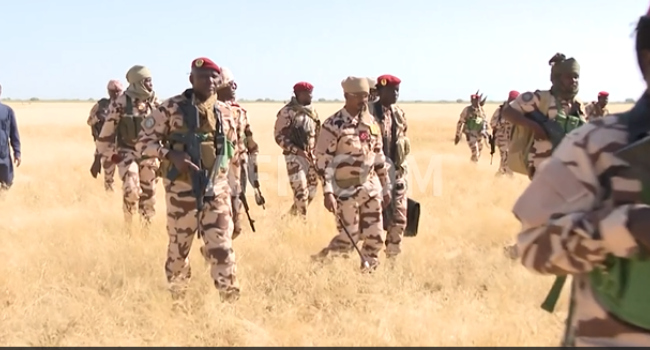Africa
Chad Considers Exiting Regional Security Force After Fatal Attack

Following a deadly assault on its troops, Chad is reevaluating its involvement in a regional security force, potentially impacting counter-terrorism efforts in the region. Read more on Chad’s stance and the implications for regional stability.
Chad’s President, Mahamat Idriss Deby, has issued a strong warning that his country might pull out from a regional security coalition due to dissatisfaction with its effectiveness in combating insurgent threats in the Lake Chad area.
During his visit to the area on Sunday, Deby expressed concerns about how effectively the Multinational Joint Task Force (MNJTF) is addressing the issue of armed groups.
The announcement came after a late October attack that resulted in the deaths of approximately 40 Chadian soldiers. The incident, allegedly executed by suspected Boko Haram militants, underscores the continuing security challenges confronting the region.
The Lake Chad basin is bordered by Chad, Nigeria, Niger, and Cameroon. Each of these countries contributes troops to the MNJTF, an organization established to combat insurgent activities across their shared borders.
READ ALSO: At Least 40 Soldiers Killed in Deadly Attack on Chadian Military Base
Deby expressed his disappointment with the force’s coordination, highlighting “a lack of joint efforts against the common enemy.” He contended that instead of improving operations and intelligence-sharing as intended, the force has “appeared to be in a slump.”
If Chad, a nation known for its well-trained and resilient military, were to withdraw from the MNJTF, it would represent a significant setback for the force. The MNJTF has faced difficulties in unifying its approach due to various challenges.
The Lake Chad area continues to be a hotspot for militant attacks, as insurgent actions have extended beyond Boko Haram’s initial base in northeastern Nigeria since 2009.
As of now, the governments of Nigeria, Niger, and Cameroon have not issued any comments on Deby’s statement.
